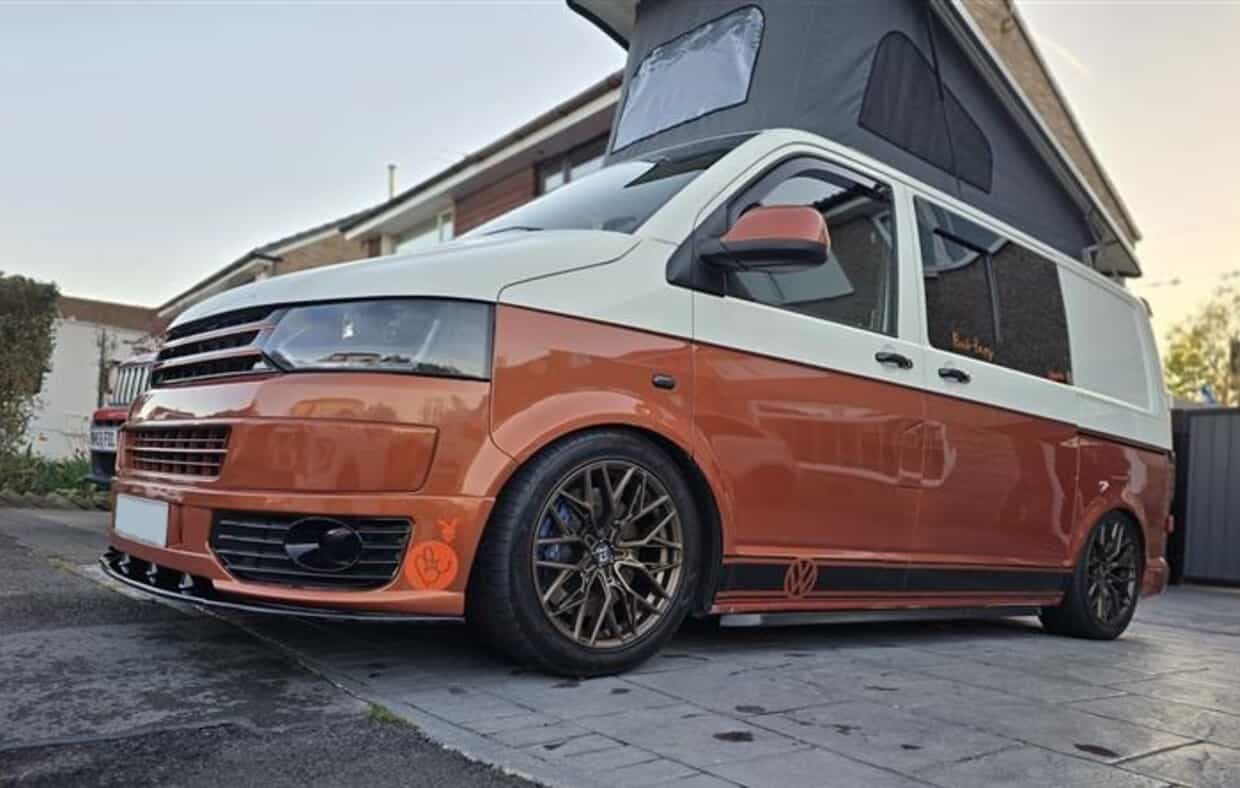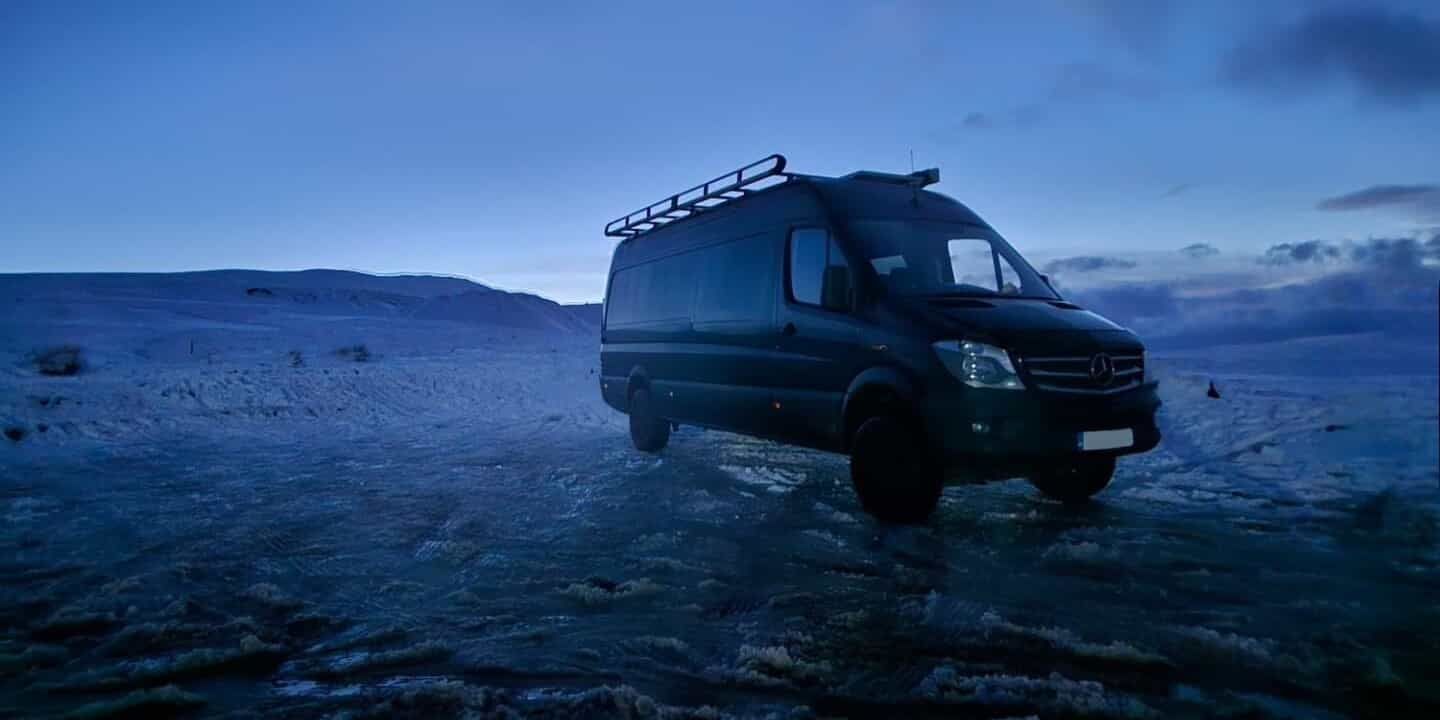If you’ve built your own campervan, chances are you’ve already spent hours fine-tuning every inch of it by insulating panels, wiring in electrics, and fitting a bed you’re genuinely proud of. But when winter rolls in, even the best DIY conversions can be caught off guard by the cold. The drop in temperature doesn’t just test your comfort; it tests your build quality, your prep, and your planning.
Whether you’re touring the UK’s snow-dusted national parks or heading for a frosty European road trip, winterising your campervan properly means you’ll stay warm, safe and ready for anything.
1. Reinforce Your Insulation & Seal Every Gap
Insulation is the unsung hero of every self-build campervan. If you cut corners during your original build, winter is when you’ll notice it. Check around wheel arches, door panels, and roof seams for cold spots, and top up where needed. Sheep’s wool or PIR insulation boards remain favourites among self-builders for their warmth and condensation control.
It’s also advised that you revisit window seals and door rubbers, as these are prime areas for draughts. Even small self-adhesive draught strips can make a big difference to comfort levels.
2. Heating Systems: A Worthwhile Winter Upgrade
A diesel heater is one of the most valuable modifications you can make for cold weather. Drawing fuel from your van’s tank, these systems keep you warm and dry even in freezing conditions. Give yours a full service before the temperature drops by cleaning the air intake, checking the exhaust, and running it occasionally to prevent carbon build-up.
If your setup includes electric or LPG heating, test it well before your first winter trip. Gas systems should always be certified by a qualified engineer for safety.
Many VW Transporter owners we insure, especially those with pop-tops or thinner wall insulation, have mentioned that adding a thermal wrap around the pop-top canvas is a great way to retain heat overnight. These lightweight wraps can make the difference between a cold, restless night and a comfortable one.
3. Protecting Your Water System
When temperatures dip below freezing, water becomes a problem. If you have underslung tanks, insulate them or install small 12V heating pads to prevent ice build-up. It’s also recommended that you always drain your tanks if you’re storing the van for long periods. Inside the van, lag exposed pipes and open cupboards during heating to allow airflow around your plumbing.
A touch of non-toxic antifreeze in waste pipes can prevent blockages too, but just remember to flush thoroughly before your next use.
4. Maintain Your Electrical System
Cold conditions affect battery performance, so your electrical system needs a little extra attention. Therefore, you’ll want to keep your leisure battery fully charged and monitor voltage regularly. It’s also advised that you clean corroded terminals and test your split-charge relay.
If you rely on solar power, remember that winter sun sits low and gives fewer hours of charge. Therefore, tilting panels slightly southward (when parked) helps maximise what daylight there is.
Those running complex power setups, often found in self-builds and modified vans, should check inverters and fuse boxes for moisture ingress. A quick maintenance check saves headaches later.

5. Mechanical Prep For Cold Conditions
Before winter touring, check your van’s antifreeze, oil, and screenwash levels. Also, replace wiper blades, clean your lights, and consider switching to all-season or winter tyres if you’re venturing into snow-prone areas.
Road salt is another silent killer as it corrodes brake components and underbodies fast. Therefore, regular rinsing underneath the van, especially after coastal or mountain drives, keeps rust at bay.
6. Beat Condensation Before It Beats You
Every winter camper battles condensation. Cooking, sleeping, and breathing all generate moisture, which clings to cold metal. Therefore, crack open a roof vent when cooking, and use small moisture traps in corners. Portable dehumidifiers or even refillable silica gel packs are also excellent for managing damp overnight.
Reflective thermal window covers are another simple but effective addition, as they retain heat and prevent that icy layer from forming on the inside of your glass by morning.
7. Soft Furnishings & Bedding
Swapping lightweight summer bedding for proper winter gear is a no-brainer. Go for a four-season sleeping bag or thick duvet and layer rugs or foam mats over cold flooring. Many self-builders even fit heated blankets wired to their leisure battery for a touch of luxury.
It’s also worth investing in insulated window screens, especially for cab windows and windscreens, which lose the most heat.
8. Off-Season Travel & Storage Tips
Not all adventures end when summer does. Many UK and EU destinations are just as beautiful in winter, for example, the Scottish Highlands, the Brecon Beacons, or the Alps all offer incredible off-season escapes.
Plan your route carefully though, as some campsites and facilities close during colder months. Carry essentials such as a snow shovel, torch, and blankets, and always check weather warnings before heading off-grid.
If you’re storing your van instead, drain your systems, disconnect the battery, and use a breathable cover. A trickle charger keeps batteries healthy and avoids flat starts come spring.
9. Check Your Insurance Before Hitting The Road
If you’ve made changes to your conversion for winter, perhaps fitted a heater, added insulation, solar panels, or upgraded your electrics, your insurer needs to know. Declaring modifications ensures your pride and joy is properly protected.
At Brentacre, we understand that no two conversions are alike, and our self-build campervan insurance is designed specifically for enthusiasts who have built or heavily modified their own vans.
If you’ve spent time, energy, and love creating a camper that’s truly yours, make sure it’s covered like one.
Final Thoughts
Winter can be the best test and the best reward for a campervan conversion. It shows how well your build performs when comfort, insulation, and practicality really matter. A few hours of preparation before the first frost can make your van warmer, safer, and far more enjoyable to use.
Whether you’re chasing mountain views, city lights, or just peace and quiet by the coast, winter doesn’t have to put your adventures on hold. Prepare properly, pack smart, and protect your build with the right insurance before you hit the road.
Because when you’ve built it yourself, every journey feels that bit more special.


